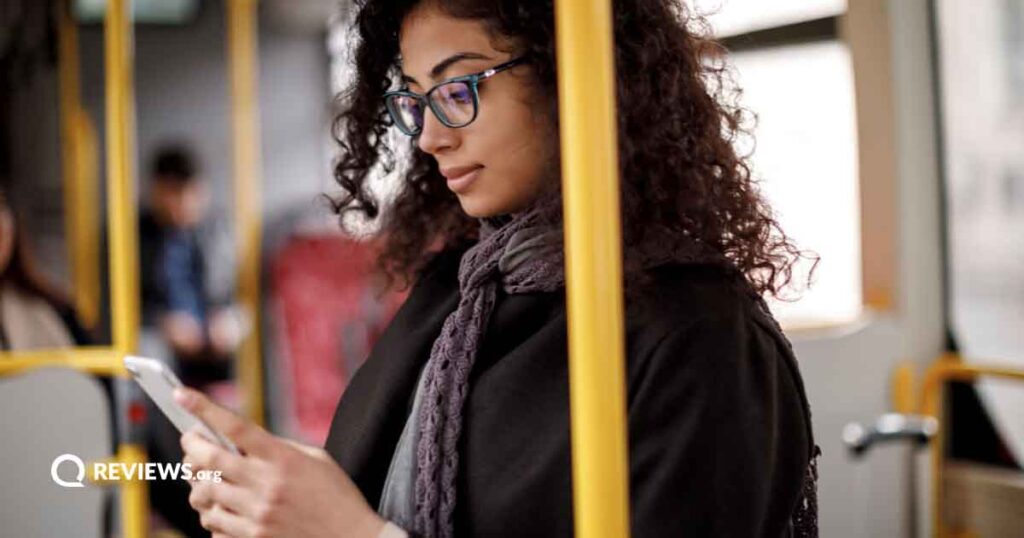Find out your next-best options for affordable internet—and get the latest updates on the ACP wind-down
The Affordable Connectivity Program Has Ended—Everything You Need To Know
The Affordable Connectivity Program (ACP) ended in May 2024, affecting 23 million households in the United States that previously received a federal discount on monthly internet. The end of the program brings distress to households that not only have to pay more for this necessity, but may even face losing internet access entirely. In fact, a survey by Benenson Strategy Group found that 95% of the program’s participants say the end of the program will cause financial difficulties and 65% fear losing their job or source of income if they lose ACP benefits.
“The program is like a digital lifeline, especially for Tribal communities living in technological deserts,” says Joshua Arce, Native Leader, CEO, and President at Partnership With Native Americans and member of the Prairie Band Potawatomi Nation. “It’s crucial to continue funding the ACP to foster digital literacy and skills for millions of people.”
Unless Congress funds additional programs that revive the ACP, many households may struggle to afford high-speed internet.
But it’s not all grim—read on to learn about the best internet plans from providers that have their own programs for low-income households–worthy alternatives that can ensure that households aren’t disconnected.
What is the Affordable Connectivity Program?
The Affordable Connectivity Program (ACP) was a federal program that provided low-income households monthly discounts up to $30/mo. ($75/mo. for those living on tribal lands) to assist with paying for broadband internet services. The federal benefit program also provided a one-time $100 discount off of a device such as a laptop, tablet, or desktop computer.
The ACP started in 2021 with funding totalling $14.2 billion. It replaced the Emergency Broadband Connectivity Fund established during the COVID-19 pandemic to keep households connected. Unfortunately, the ACP will end after May 2024 due to funds running out.
For millions of people in the United States, the end of the program is not just a hit to their budget, but also a barrier to participating in work, school, and essential services.
“I was just listening to a young lady talk about her ability to run an online business with the ACP and her concerns with the program ending,” Arce says. “ACP being discontinued will have an adverse revenue impact on families currently struggling, but it will go beyond that. The impact will also be multi-generational; it affects the entire household.”
Best internet plans for low-income households
Individual providers have their own discounted programs for qualifying low-income households. As a rule of thumb, aim to get at least 100Mbps for speed, which is the federal standard baseline to support streaming video, music, gaming, and working from home in a small or midsized household. Larger households likely need higher speeds.
Best low-income internet plans
*Households that have at least one child that qualifies for free or reduced-price school lunch through the National School Lunch Program (NSLP) can have the modem monthly rental fee waived, a $14 value. Rental fee is also waived if the customer uses their own network compatible modem.
Regional discounted internet programs for low-income households
In addition to the providers we recommend above, the White House has highlighted regional providers committed to providing discounted services for eligible low-income households until the end of 2024.
President Biden continues to call on Congress to extend funding for the Affordable Connectivity Program. While there aren’t any updates yet, the Biden-Harris Administration has made a $90 billion investment split into programs that aim to increase access to high speed internet and devices.
How do you save money on internet? We can help
At Reviews.org, we have lots of expert advice on how to get affordable internet that’s still fast and reliable. Here’s a rundown of comprehensive guides we’ve put together that highlight low-cost internet options.
What’s the current status of the ACP?
For now, the Affordable Connectivity Program has ended due to a lack of additional funding from Congress. Here’s a timeline of what’s happened to the program:
February 7, 2024: The program stopped accepting applications.
March 2024: Internet service providers sent notices to enrolled customers about upcoming changes to the ACP. Customers were given the option to opt-in to continue their plan at full cost, switch plans, or cancel their plan.
April 2024: Households that were already enrolled in the program received the full ACP discount on their monthly internet service bill until the end of April.
May 2024: ACP customers received only partial discounts as the program was no longer fully funded.
June 2024: The Affordable Connectivity Program officially ended on June 1, 2024.
What’s next: There are ongoing efforts in Congress to continue the Affordable Connectivity Program or provide similar benefits, but there hasn’t been any news yet of a confirmed extension.
The end of the ACP widens the digital divide
Education is a key area where internet access is a necessity. According to our Homework Gap Report, only 27% of students under age 18 without high-speed internet connection go on to complete a postsecondary program (e.g. college), compared to 96.66% of those who do have high-speed internet access.
Jenny Young, founder and CEO of Brooklyn Robot Foundry, an educational program in New York City, believes that accessible internet enhances children’s learning opportunities. “With increased internet access, students can explore their interests, pursue their passions, and develop the digital literacy skills necessary for success in our increasingly connected world,” Young says.
The ACP has made a major difference to not just individual students, but also to wider school communities.
“Through ACP, educators had a reliable digital conduit to students that would not only help them to remain better connected to students, but also help the students to become better immersed in a highly competitive digital world," says Natalie Greaves, a marketing professional in Queens, New York, who saw how the ACP helped keep kids connected at her daughter's combined elementary and middle school.
The federal Lifeline program is still active
While having to find a replacement for the ACP is anxiety inducing, you can still save on your internet bill through the Lifeline Support Program, a federally funded monthly discount that supports qualifying low-income families in accessing high-speed internet. Although the discount is significantly smaller than the ACP, it’s worth a shot to reduce your bills with this ongoing program.
Lifeline Support Program
What is the impact of the Affordable Connectivity Program ending?
According to a survey conducted by the Benton Institute on Broadband & Society, there are many concerning implications due to the end of the Affordable Connectivity Program. Here are a few of the top findings:
- 50% of surveyed households enrolled in ACP said they would end their internet service or downgrade to a plan that is slower or cheaper once the program has ended.
- Approximately 13% of households that participated in the ACP said that losing the $30 per month plan discount would cause them to cancel service.
- The total estimated value of lost opportunities due to low-income households losing broadband internet service would be over $2 billion annually.
Quick ways to save on your internet bill
To stretch your dollar even further, run a search with your zip code to see if you can find other affordable internet options in your area.
You can make other small fixes and adjustments to lower your monthly bill too. Here’s a rundown of what you can do to lower your Wi-Fi bill.
- Sign up for a slower internet plan to lower the price.
- Look for promotions and deals offered by your internet provider.
- Buy your own modem and router rather than renting equipment from your provider.
- Bundle your internet with a mobile phone plan for a discounted rate.
- Negotiate with customer service to get promo prices or other deals.
- Switch to a cheaper internet provider (fiber and 5G are best).
Related Articles







